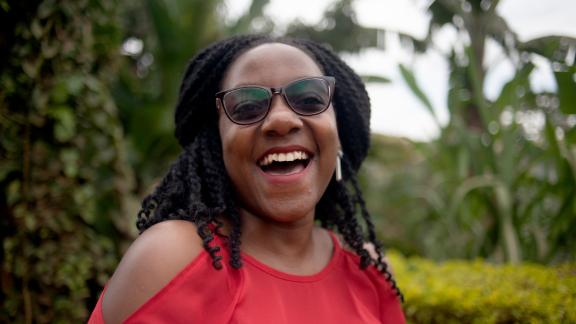10 December 2020. IPPF Africa Region joins the world in marking the International Human Rights Day.
This year, the theme of the international human rights day is: “Recover Better – Stand up for Human Rights”. During these dire times of the pandemic, human rights violations have continued everywhere in the world.
In Africa, numerous incidents of use of excessive force, arbitrary arrests or detention, restrictions on civic space, and blanket denial of the right to seek asylum during the implementation of COVID-19 prevention measures have been reported. For example, in Kenya, the manner of enforcement of emergency measures by police amplified negative human rights impacts, and led to deaths, injuries, sexual and gender-based violence and hundreds of arrests. In South Africa, the army and the police were accused of shooting, beating, teargassing and water bombing people suspected of violating lockdown measures. The same was witnessed in Ivory Coast where police clashed with citizens who were protesting against the establishment of a coronavirus testing center in the capital city of Abidjan.
While public health protocols and control measures are indeed necessary, they should not come at the expense of people’s human rights.
According to UN Women, prior to the pandemic, violence against women across the world was already alarmingly high, with nearly one in five women (18%) experience violence in the past 12 months at the hands of an intimate male partner. With COVID-19, an increased reporting of domestic violence has surfaced, with a staggering 40% rise in some countries.
The pandemic has forced victims to stay at home with their abusers, leaving them with few opportunities to seek shelter or solace. Access to vital sexual and reproductive health services, including for women subjected to violence, have become more limited. Other services, such as hotlines, crisis centers, shelters, legal aid, and protection services have been scaled back, further reducing access to the few sources of help that women in abusive situations might have. Victims in the world’s poorest countries, especially those with already-existing humanitarian crises, are the most vulnerable.
As the UN High Commissioner for Human Rights recently stated : «COVID 19 is a test of societies, of governments, of communities and of individuals. Now is the time for solidarity and cooperation to tackle the virus, and to mitigate the effects, often unintended, of measures designed to halt the spread of the virus. Respect for human rights across the spectrum, including economic, social, cultural, and civil and political rights, will be fundamental to the success of the public health response and recovery from the pandemic.».
The norms and principles of human rights should guide governments’ responses to COVID-19, with these rights strengthening the public health response to the pandemic. People’s fundamental human rights, such as the right to life and duty to protect life and the right to health and access to healthcare, that are enshrined in Constitutions and embedded in various international instruments must be respected, regardless of the prevailing circumstances.
IPPF Africa Region takes this opportunity to call upon all relevant authorities to ensure that everyone’s human rights are respected, protected and fulfilled in the response to the pandemic.
when








